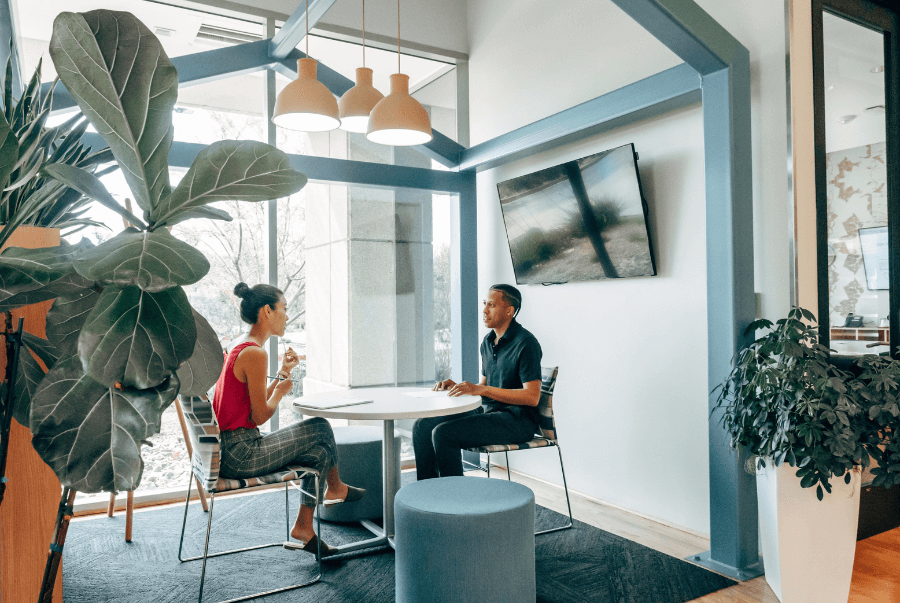
• 27 / 02 / 2019
Introduction
Cultural fit emerges as a critical success factor in the dynamic landscape of American job interviews, where experience and qualifications frequently share the spotlight with an intangible factor. This blog explores the complex world of job interviews in the US, focusing on the importance of cultural fit and how it influences hiring decisions in addition to resumes.
1. Going Beyond Qualifications and Experience:
Resumes highlight qualifications and abilities, but cultural fit extends beyond the material aspects of training. It includes a person's compatibility with the interpersonal dynamics, work ethic, and company values.
Companies look for applicants who not only possess the necessary abilities but also fit in with the mission, vision, and work environment of the company.
2. Integration into the Work Environment: Achieving cultural fit involves more than just fitting in; it also entails a smooth transition into the workplace. Collaboration, creativity, and a positive work environment are all encouraged by this integration.
Employers respect workers who not only deliver quality work on their own but also enhance team cohesion and productivity.
Cultural Fit Is Crucial in American Job Interviews
1. Company Values and Mission: Candidates who share the values and mission of American companies are frequently given preference. Employers can determine whether a candidate shares the company's ethos and is passionate about contributing to its goals through job interviews.
A candidate can stand out and convey a sincere commitment by exhibiting a comprehension of and resonance with the company's values.
2. Team Dynamics and Collaboration: The American workplace culture places a strong emphasis on teamwork. During an interview, an employer evaluates a candidate's capacity for teamwork, communication, and collaboration.
One way to assess a candidate's fit with the team's collaborative expectations is to use situational scenarios and behavioral questions.
3. Flexibility and Adaptability: Given how quickly roles and industries can change in American workplaces, adaptability is highly regarded. Candidates that exhibit adaptability, resiliency, and a capacity for change are sought after by employers.
Insights into a candidate's adaptability can be gained by asking questions concerning how they handle difficulties, adjust to new situations, and learn from their experiences.
Techniques to Handle Cultural Fit Interviews:
1. Study the Company Culture: Candidates should do extensive research on the company culture before the interview. Having a thorough understanding of the company's values, work culture, and team dynamics helps candidates adjust their responses to meet the expectations of the organization.
A few useful sources for learning about corporate culture are mission statements, employee testimonials, and online reviews.
2. Place an Emphasis on Soft Skills: Evaluations of cultural fit depend heavily on soft skills like cooperation, communication, and adaptability. Applicants should highlight these abilities with concrete examples drawn from their past experiences.
Telling anecdotes of triumphant teamwork, proficient correspondence, and flexibility in the face of change can strengthen an applicant's cultural fit.
3. Inquire About Company Culture: A job interview is a two-way conversation. Candidates ought to take advantage of the chance to inquire about the culture of the business. It shows that you are interested in cultural alignment when you ask questions regarding team dynamics, communication routes, and the company's approach to employee development.
Talking with a candidate about their cultural fit not only gives them useful information, but it also shows the employer that cultural alignment is important.
Conclusion
Cultural fit is the unseen factor that permeates hiring decisions in American job interviews. It's the tacit knowledge that effective integration into a company requires more than just technical know-how; it also requires embracing teamwork, aligning values, and adjusting to the particular culture of each organization.
Understanding the importance of cultural fit as candidates move through the interview process becomes a tactical component in creating the ideal match between the candidate and the organization. Beyond qualifications and resumes, cultural fit becomes a common language between employers and candidates, influencing career paths and enhancing an organization's overall performance.
Sign up at UNIPREP, your one-stop platform for global opportunities in education, business, career & life abroad.
Cookies help us evaluate website traffic and improve user experience.Your information will be aggregated with the data of all other users after you agree to our usage of cookies.
UNIABROAD LTD.
Suite 524, Citibase, The Atrium, 1 Harefield Rd, Uxbridge UB8 1EX, United Kingdom
UNIABROAD Technology Ltd.
165/1,Opp Brahmasthana Kalyana Mantapa, Sahukar Chenniah Road, TK Layout, Mysuru, Karnataka
Privacy Policy | Terms & Conditions | Disclaimer | Refund Policy

Privacy Policy | Terms & Conditions | Disclaimer | Refund Policy
2023 © All rights reserved by UNIABROAD LTD.